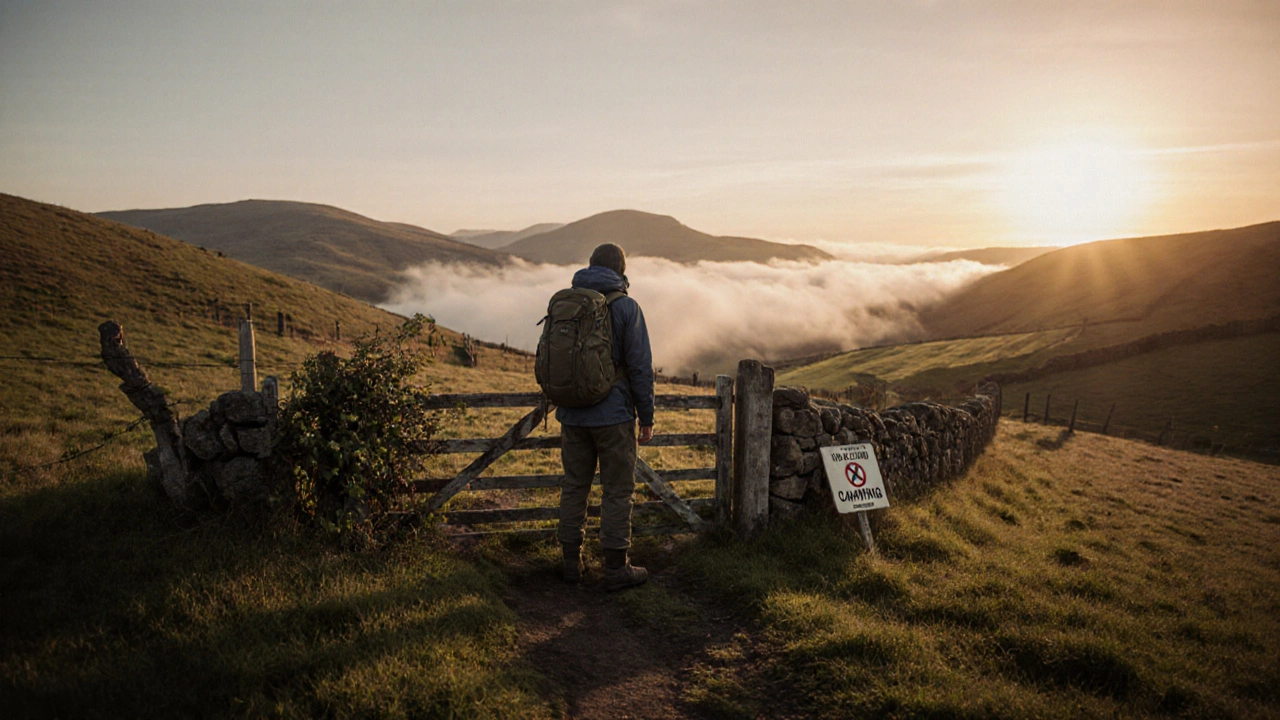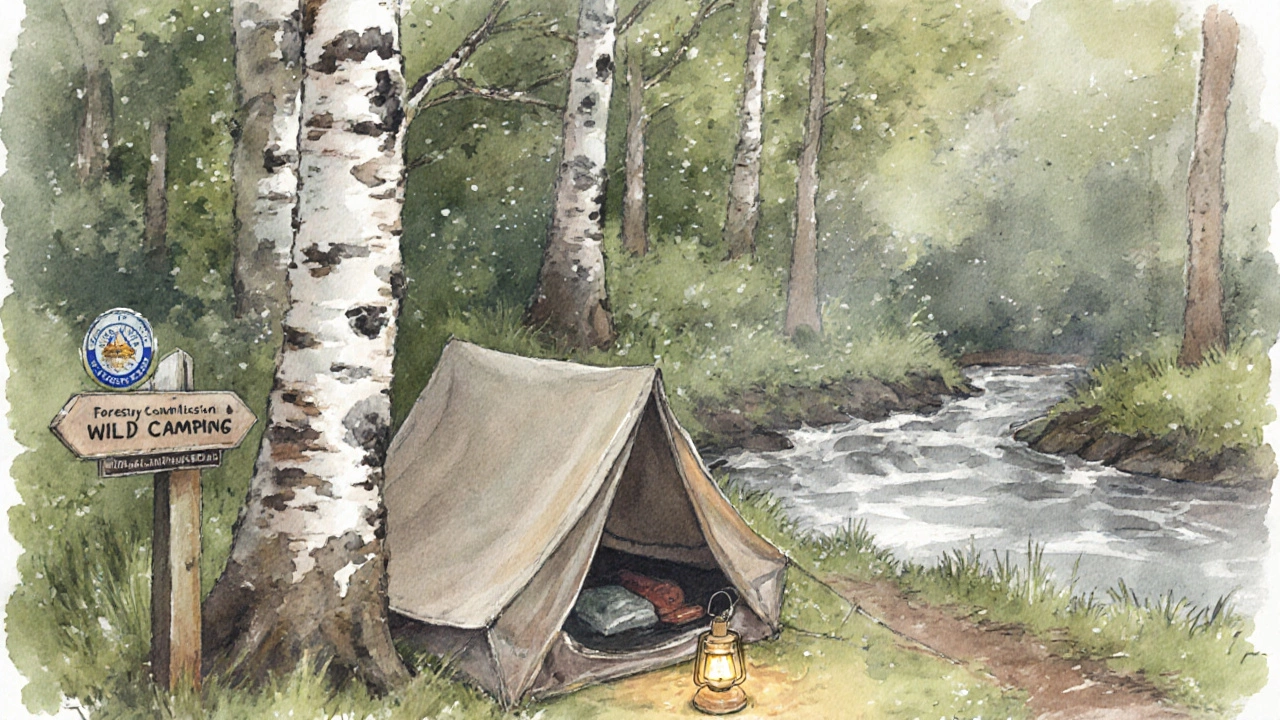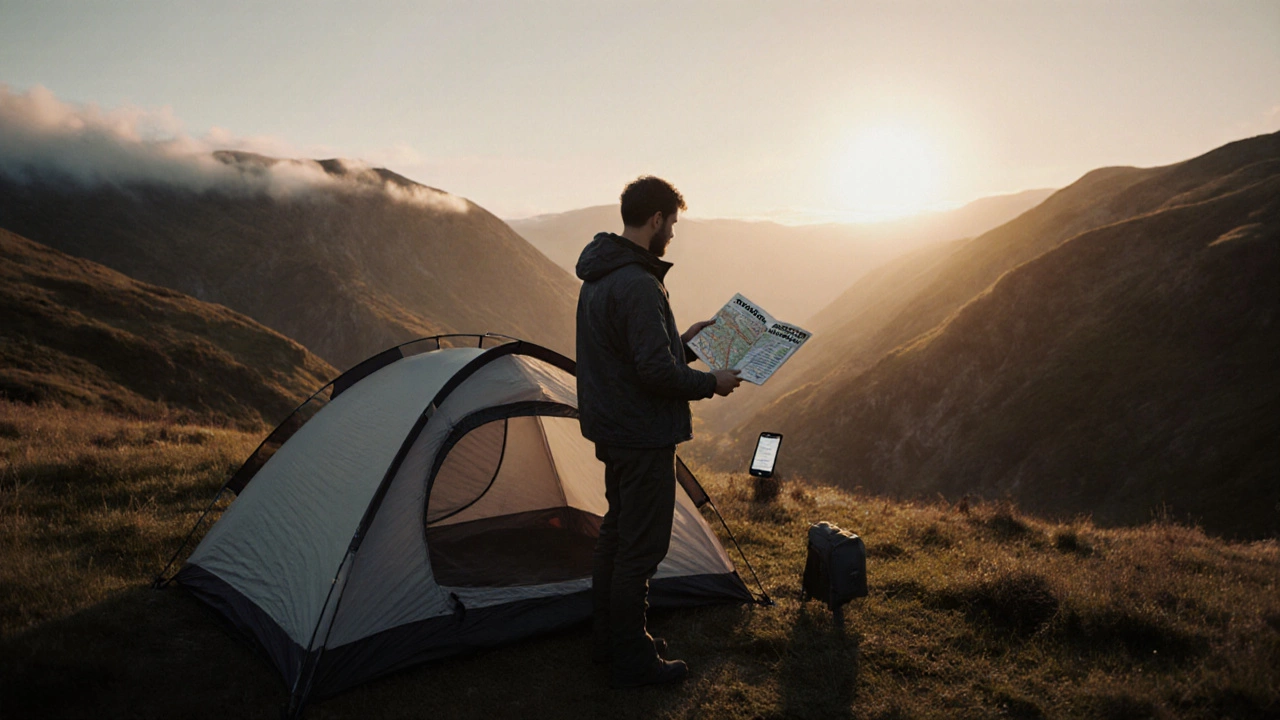Why Camping Is Illegal in England - Legal Facts, Exceptions & How to Stay Safe
 Oct, 24 2025
Oct, 24 2025
Ever wondered why you can’t just pitch a tent on a hillside in England and expect to be okay? The short answer is that England doesn’t have a blanket right to roam like its northern neighbours. The rules are built around private land ownership, historic trespass laws, and specific statutes that keep most wild camping off‑limits.
What the law actually says
Camping law in England is a collection of statutes, case law and local by‑laws that govern where and how you may set up a tent or park a caravan. The core legislation includes the Commons Act 2006, the Countryside and Rights of Way Act 2000 (CRoW), and various trespass provisions under the Criminal Justice and Public Order Act 1994. While the CRoW Act grants public access to open countryside, it explicitly excludes the right to camp without landowner permission.
In practice, that means unless a landowner, local authority or designated body says “yes”, setting up a bivouac is considered trespassing, which can lead to warnings, fines, or even police involvement.
Why wild camping is generally illegal
- Private land ownership dominates - Over 90% of England’s land is privately owned. The legal system protects owners’ rights to control how their property is used.
- Trespass is a civil matter - While simple trespass isn’t a criminal offence, it can quickly become one if the landowner claims damage or disturbance.
- Safety and environmental concerns - Authorities argue that uncontrolled camping could lead to fire hazards, litter, and damage to protected habitats.
- Historical precedence - England’s legal tradition has never included a general “right to roam” for campers, unlike Scotland’s Land Reform (Scotland) Act 2003.

Exceptions - where you can legally camp
There are pockets where the law bends, either because of specific permissions or because the land is publicly owned and managed for recreation.
| Location | Permission Required? | Typical Rules |
|---|---|---|
| National Parks (e.g., Peak District) | Yes - via designated sites or landowner consent | Stay within marked areas, fire bans apply |
| Forestry Commission land | Often Yes - many forests have “wild camping” zones | Leave no trace, limit stay to 2 nights |
| Coastline owned by the Crown | No - Crown land is still private unless designated | N/A |
| Private farm with farmer consent | Yes - written permission | Follow agreed boundaries |
| Public footpaths and bridleways | No - access rights do not include camping | N/A |
Key bodies that manage some of these exceptions include the Forestry Commission - the government agency responsible for public forests, which often publishes maps showing where overnight stays are allowed. The National Parks - each park has its own authority that may designate specific sites for wild camping, usually requiring a small fee. And of course, any Landowner can grant permission on a case‑by‑case basis, often in exchange for a nominal contribution.
How to stay legal - practical tips
- Check the official website of the area you plan to visit. Look for “wild camping” policies or designated sites.
- If you’re unsure, ask the landowner or local council. A quick email or face‑to‑face chat can save you a lot of trouble.
- Carry a copy of the Countryside Code. Following its guidelines (leave no trace, respect livestock, keep noise down) demonstrates good intent and may reduce the likelihood of a complaint.
- Limit your stay. Most legal wild‑camping zones permit only one or two nights per site.
- Stay away from private houses, farms, and areas with visible “No camping” signs.
- Use a portable stove instead of open fires, especially during fire bans.

Common misconceptions
Many people assume that because England has a beautiful countryside, anyone can camp wherever they like. The reality is more nuanced:
- Myth: “If I’m on a public footpath, I can camp.” - Fact: Access rights stop at the path; camping is still trespass.
- Myth: “Scotland’s laws apply across the UK.” - Fact: Only Scotland has the broad right to wild camp; England and Wales have stricter rules.
- Myth: “If nobody sees me, it’s okay.” - Fact: Landowners can still enforce their rights, and police can intervene if a complaint is filed.
Key Takeaways
- England does not have a universal right to wild camp; most of the land is private.
- The main legal framework is a mix of the CRoW Act, trespass law, and local by‑laws.
- Legal camping is possible in designated areas of National Parks, Forestry Commission forests, and with explicit landowner permission.
- Always check local guidelines, respect the Countryside Code, and keep stays short.
- Misunderstanding the law can lead to fines, eviction, or a bad reputation with landowners.
Is wild camping ever legal in England?
Yes, but only in specific places that grant permission - such as designated sites in National Parks, certain Forestry Commission forests, or private land where the owner has said it’s OK.
Can I camp on a public footpath?
No. The right to walk a footpath does not include the right to stay overnight. Doing so is considered trespass.
What are the penalties for illegal camping?
You may receive a warning first, but repeated offences can lead to a fine (£100‑£500) or, in extreme cases, a police charge for aggravated trespass.
How does the law differ between England, Scotland, and Wales?
Scotland has the Land Reform Act that grants a broad right to wild camp almost anywhere. Wales follows England’s stricter rules, though some Welsh National Parks have more permissive policies.
Where can I find up‑to‑date information on permissible camping spots?
Check the official websites of the relevant National Park Authority, the Forestry Commission, or local council sites. Many also publish downloadable maps and PDFs.